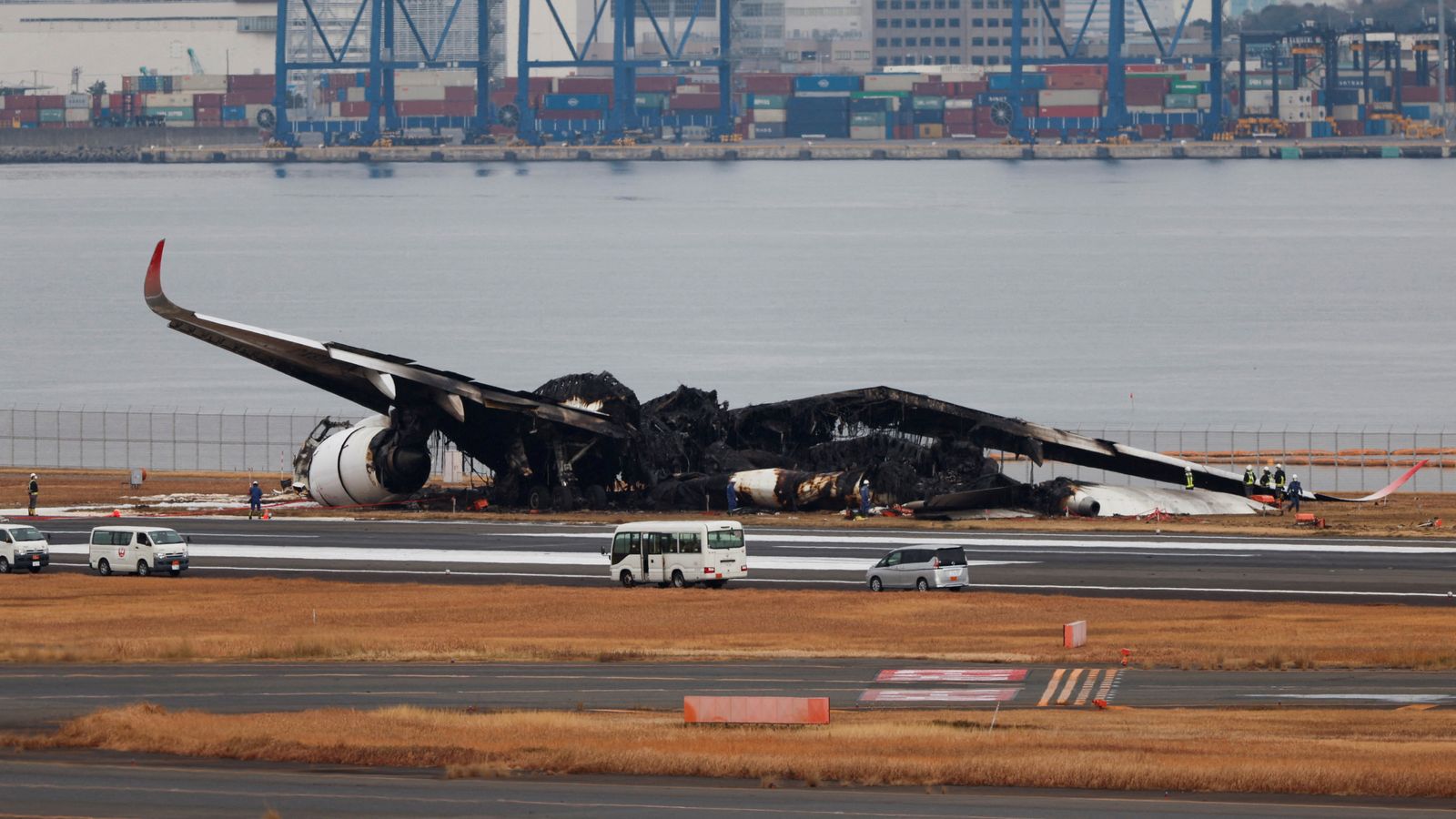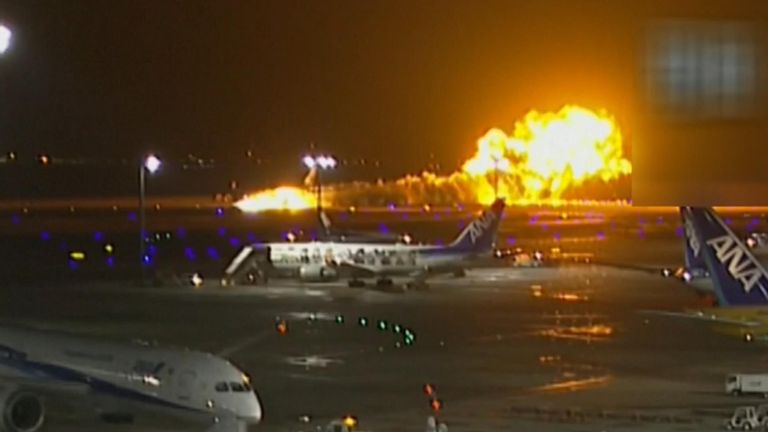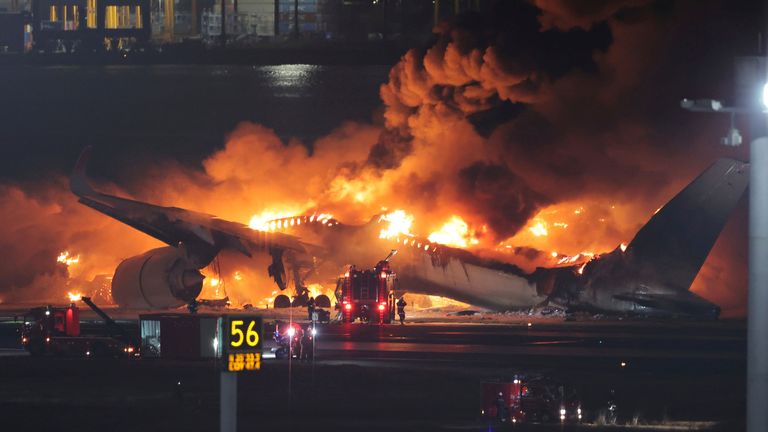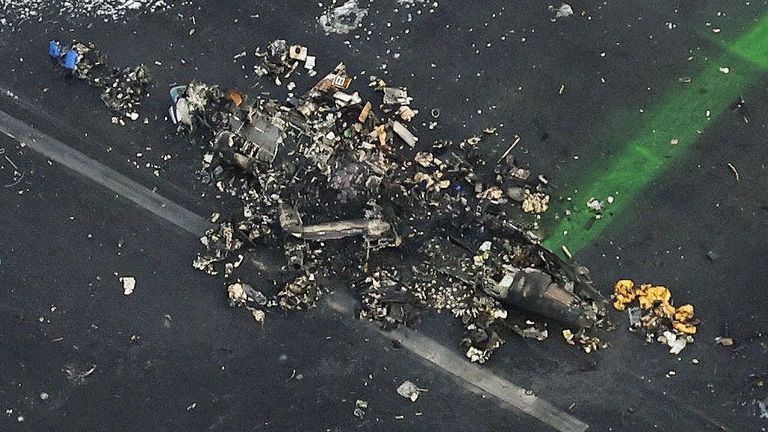A full transcript detailing air traffic control conversations moments before the fatal plane crash at Tokyo’s Haneda airport has been released by authorities in Japan.
The transcript shows the discussions between the airport’s control tower and the two planes – one a Japan Airlines (JAL) passenger jet and the other a smaller coastguard plane – involved in the collision.
The Tower transcript suggests the JAL passenger flight was given permission to land, while the coastguard plane was told to wait at a holding point next to the runway.
According to the transcript, released by Japan’s Transport Ministry, the coastguard plane appears to confirm the order to hold beside the runway back to air traffic control before the collision.
However, the captain of the smaller aircraft, who was the only person of the five people aboard it to survive the crash, said he entered the runway after receiving permission, a coastguard official said.
All 379 people on the JAL flight were safely evacuated.
It comes as Japan’s national broadcaster, NHK, reported that pilots in the JAL passenger flight were initially unaware that a fire had broken out on the plane following the collision – despite dramatic pictures showing the plane engulfed in flames.
According to the broadcaster, quoting Japan Airlines, the chief flight attendant informed the cockpit the plane was burning.
Under rules at most airlines, cabin crews have the authority to evacuate the cabin in certain situations, such as a serious fire.
All 379 people on JAL Flight 516, arriving from the northern island of Hokkaido, managed to flee the aircraft after it burst into flames on Tuesday.
Five people aboard the Bombardier Dash-8 Turboprop coastguard plane died, while the pilot who escaped the wreckage is badly injured.
Authorities are now investigating exactly what happened, including how the two planes ended up on the same runway.
One thing investigators may look at is a notice to pilots in force before the accident which suggested that a strip of stop lights embedded in the tarmac as an extra safety measure to prevent wrong turns, was out of service, according to a copy of the bulletin posted by US regulators.
Read more:
Japan plane fire: What happened
Small coastguard jet ‘wasn’t cleared for take-off’
Tokyo police also are separately investigating whether professional negligence could have contributed to the crash, according to local media.
“There’s a strong possibility there was a human error,” said aviation analyst Hiroyuki Kobayashi, a former JAL pilot.
“Aircraft accidents very rarely occur due to a single problem, so I think that this time too there were two or three issues that led to the accident.”




